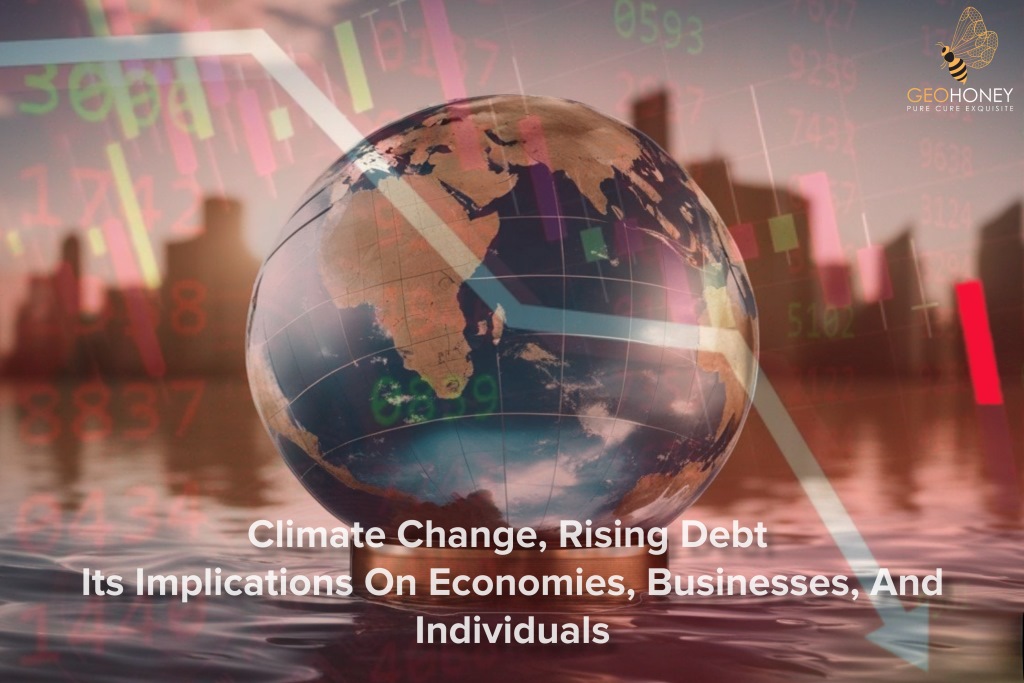- Tokyo: 07:50
- Singapore: 06:50
- Dubai: 02:50
- London: 22:50
- New York: 17:50
Climate Change is a Factor in Rising Debt

According to a new study, climate change caused by greenhouse gas emissions is influencing more than just the environment; it is also affecting financial factors such as the cost of debt. Let's take a look at what this means for economies, businesses, and ordinary people.
Our study examined the impact of climate change on sovereign ratings for 109 nations over various time frames, merging artificial intelligence with credit rating algorithms and climate-economic models. The analysis revealed that, as a result of climate change, 59 countries' ability to repay debts will deteriorate and borrowing rates will rise by 2030. This number will climb to 81 by the end of the century.
What does this have to do with us? When borrowing rates rise for nations, banks, and corporations, these expenses eventually reach the general populace. It may result in higher consumer costs and higher mortgage interest rates. Even pensions invested in bonds by countries impacted by climatic disasters may lose value.
The findings apply to firms and banks as well. Climate change requires credible knowledge to be translated into actual hazards and integrated into decision-making in financial markets. Existing credit ratings or environmental, social, and governance (ESG) ratings frequently fall short of the norm, and are occasionally tied to fossil fuel firms.
According to previous assessments, financial institutions typically misunderstand the economic models and risks of climate change. The obvious mismatch between climate scientists, economists, model makers, and financial organisations complicates matters.
The analysis concludes that if countries stick to the Paris Agreement and limit global warming to less than 2°C, the impact on credit ratings will be minor. The increased expenses of debt servicing would be much lower in a low-emissions scenario than in a high-emissions scenario.
Unfortunately, if emissions continue to rise at their current rate, nearly all countries, rich or poor, hot or cold, will face credit rating downgrades. Canada, Chile, China, India, Malaysia, Mexico, Slovakia, and the United States are among the most affected countries.
To address this concealed threat, climate science must be integrated into financial indicators such as credit ratings. Understanding and accurately representing the economic impacts of climate change are critical first steps towards putting effective policies in place.
Climate change is a major economic dilemma that impacts nations, corporations, and individuals alike. By recognising and adjusting to these financial repercussions, we can work towards a more sustainable future, reducing both the environmental and economic damage caused by climate change.
Source: onegreenplanet.org



